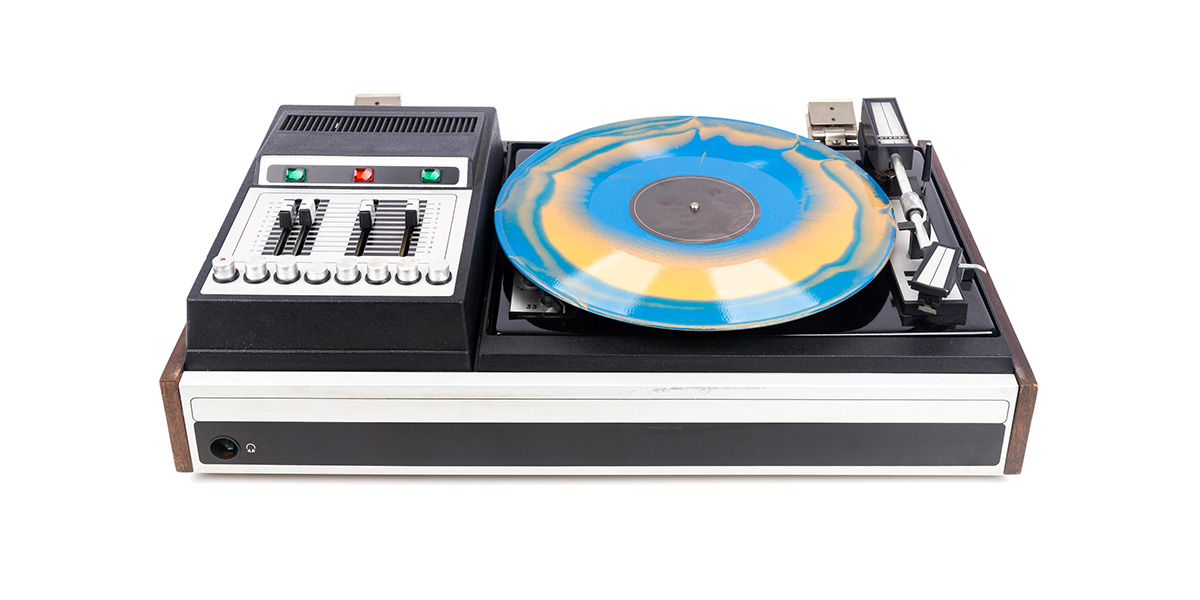So, how do I make my music better and more environmentally friendly? With COP27 upon us, conversations within the music industry become more concentrated on the impact of listening to music, be it by streaming or on physical formats. Here we look at the changes the vinyl manufacturing industry is putting in place to reduce its impact on the environment.
Today most people don’t get their music from vinyl or a CD, but from streaming services, with an estimated 487 million people worldwide subscribed to music streaming platforms. So how does streaming’s environmental impact compare to that of physical formats?
On a per-unit basis, streaming has a far lower carbon footprint than any physical format. Estimates put the carbon footprint of an hour of media streaming at around 55 grams of CO2 equivalent, while CDs are over three times that, and vinyl and cassettes release over 2 kilograms of CO2 a unit.
But the huge growth in our music consumption more than outweighs those savings.
Between 1977 and 2016, the carbon emissions of recorded music formats in the US grew by 45 per cent, up to over 200,000 tonnes a year. Digital music formats account for 94 per cent of that.
Data analysis shows the carbon footprint of Spotify streams of Olivia Rodrigo’s hit single “Drivers License” since January 2021 is greater than flying from London to New York and back 4,000 times, or the annual emissions of 500 people in the UK.
A viral song has a bigger annual carbon footprint than 500 people Tonnes of CO2 emissions
- Spotify streams of “drivers license” since Jan 2021 = 4,180t
- 4A person flying from London to New York, and back, 4000 times = 3,944t
- Annual emissions of 500 people in the UK = 2,830t
Source: Sharon George, Keele University; Atmosfair; WorldBank
So even though streaming music has become much more of a problem, it doesn’t mean the focus on the impact of physical media should stop and In particular the issue of the use of PVC.
PVC is used to make vinyl LPs (albums) because it is a very stable and non toxic product. However, the manufacturing of that PVC, before it goes to pressing records, is a very different matter and the global impacts are growing.
- 41.72 million LPs sold in the USA in 2021 Equates to around 7,500 tonnes of PVC – a massive rise of just over 51% since 2020
- In the UK 5.3million LPs were sold in 2021 Using not far off 1000 tonnes of PVC
- Global production capacity is around 180million LPs a year Which with a 180gramme LPs the standard, plus some waste in production, would equate to over 30,000 tonnes of PVC a year.
The music industry is waking up to its climate impact and a clear need to demonstrate a ‘solutions mindset’ to show leadership.
Two companies have set about tackling the problem at a manufacturing level by either replacing PVC or replacing the machines that make records with more environmentally friendly ones.
A lot of energy is lost during the vinyl manufacturing process. Traditionally, vinyl records are produced with a press that works on steam: a time consuming process that also uses a lot of energy and creates waste. In addition, the material of which the vinyl records are made contains a number of ingredients which are harmful to the environment, especially during the recycling process. ‘Green Vinyl’ a Dutch company, has developed an environmentally friendly production process
This process is based on the injection moulding principle instead of pressing. They replace the plastics (PVC) of which current vinyl is made with environmentally friendly materials. Maintaining the familiar vinyl feeling is key in this process. They achieve energy savings of over 60%, create a faster manufacturing process and cause less impact on environment.
Watch Green Vinyl's promo video here
Another company, Evolution Music is pioneering a bioplastic to replace PVC, but using existing pressing machines. Evolution Music will enable the manufacturing of bioplastic LPs through its supply chain relationships, with the process of manufacturing the bioplastic LPs remaining the same as those for PVC LPs – only the raw materials will be changed, with complementary people and planet friendly packaging and distribution used. Trials are being completed with different pressing plants to ensure the solution works for different types of pressing machinery in use.
Watch Evolution Music's promo video here
The main difference being that Green Vinyl has created new machinery and Evolution Music uses existing technology. Their argument being that the impact of scrapping many hundreds of existing machines will be fare worse for the environment.
Whichever process wins out, or if both go on to be the norm in physical record manufacturing, this can only be a real positive for the industry and it’s impact on the environment, creating ecologically sustainable solutions that will accelerate the evolution of the industry to become earth friendly and socially responsible.
Sources: The New Statesman
